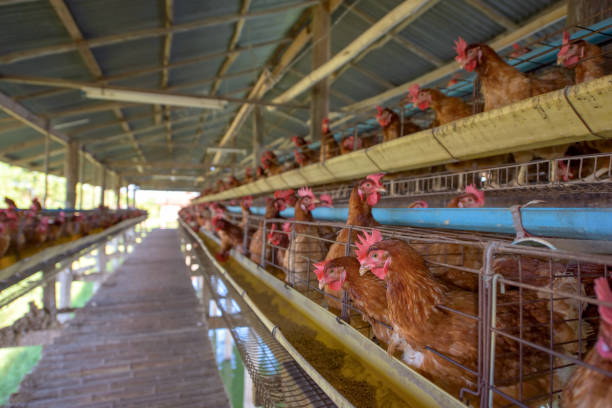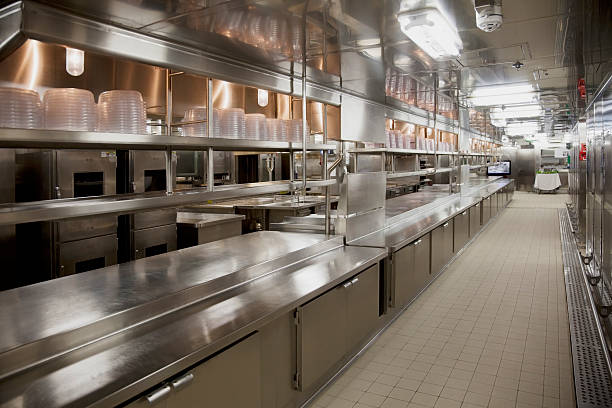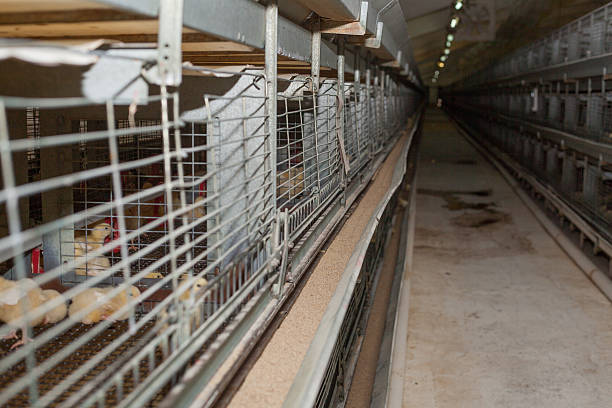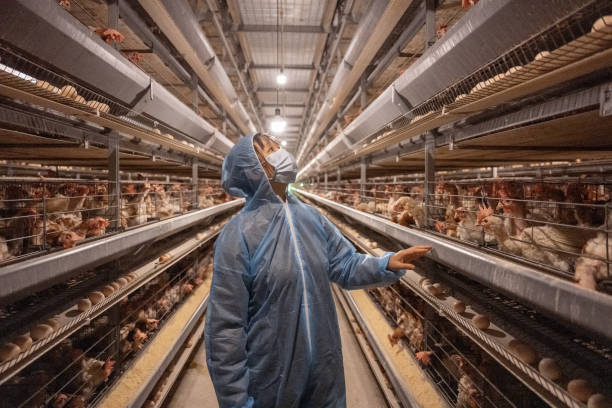
Find Reliable Automated Poultry Equipment Suppliers in Africa
Find Reliable Automated Poultry Equipment Suppliers in Africa
For poultry farmers in rapidly developing African nations, embracing automation is no longer a luxury; it’s a necessity for survival and growth in a competitive market. Automated poultry equipment can significantly improve efficiency, reduce labor costs, enhance bird welfare, and ultimately boost profitability. But with a vast and diverse market, finding reliable automated poultry equipment suppliers in Africa can be a daunting task. This comprehensive guide will walk you through the key factors to consider, where to look, and how to ensure you’re partnering with a supplier who can truly help your poultry farm thrive.
Why Automate Your Poultry Farm?
Before diving into the selection process, let’s quickly recap the compelling reasons why automation is transforming poultry farming across Africa:
Reduced Labor Costs: Automated feeding, watering, egg collection, and climate control systems drastically reduce the need for manual labor. This is especially crucial in regions where labor costs are rising.
Increased Efficiency: Automated systems operate consistently and accurately, leading to better feed conversion ratios, faster growth rates, and higher egg production.
Improved Bird Welfare: Automated climate control, ventilation, and lighting systems create a more comfortable and consistent environment for your birds, reducing stress and disease.
Enhanced Biosecurity: Automated systems minimize human contact with the birds, reducing the risk of disease transmission.
Data-Driven Decision Making: Many automated systems come with sensors and software that provide valuable data on bird health, environmental conditions, and production levels, allowing you to make informed decisions to optimize your operations.
Key Considerations When Choosing a Supplier
Selecting the right automated poultry equipment supplier is a critical decision that can impact the success of your farm for years to come. Keep these factors in mind:
Experience and Reputation
Years in Business: How long has the supplier been operating in the African market specifically? Longevity often indicates stability and a proven track record.
Customer Testimonials and Referrals: Ask for references from existing customers in your region. Contact those customers to get firsthand feedback on the supplier’s products, service, and support.
Industry Recognition: Do they have any certifications, awards, or affiliations with reputable poultry associations?
Track Record in Africa: A supplier that understands the specific challenges and opportunities of the African poultry market is invaluable.
Product Quality and Range
Durability and Reliability: Automated equipment should be built to withstand the harsh African climate and the demands of continuous operation.
Technology and Innovation: Look for suppliers who are investing in the latest technologies and offering innovative solutions to improve poultry farming practices.
Customization Options: Can the supplier tailor the equipment to your specific needs and the size of your farm?
Comprehensive Product Range: Ideally, the supplier should offer a complete range of automated equipment, including feeding systems, drinking systems, egg collection systems, climate control systems, manure removal systems, and cages (layer cages and broiler cages).
Spare Parts Availability: Ensure that spare parts are readily available locally or can be quickly shipped to your location.
After-Sales Service and Support
Installation and Training: Does the supplier provide professional installation and training services to ensure that your equipment is properly set up and operated?
Maintenance and Repair: What is their policy on maintenance and repair? Do they have local technicians or a network of authorized service providers?
Technical Support: Do they offer 24/7 technical support to address any issues that may arise?
Warranty: A comprehensive warranty provides peace of mind and protects your investment.
Response Time: How quickly do they respond to inquiries and service requests?
Price and Financing Options
Competitive Pricing: Get quotes from multiple suppliers to compare prices. However, don’t just focus on the lowest price. Consider the overall value, including product quality, service, and support.
Financing Options: Does the supplier offer financing options or have partnerships with financial institutions that can provide loans or leasing arrangements?
Local Presence and Network
Local Office or Distributors: A supplier with a local presence is better positioned to provide timely support and service.
Network of Partners: Do they have a network of local partners, such as installers, technicians, and feed suppliers, that can support your operations?
Where to Find Reliable Suppliers in Africa
Now that you know what to look for, where can you find reliable automated poultry equipment suppliers in Africa? Here are some key avenues to explore:
Trade Shows and Exhibitions: Attend poultry trade shows and exhibitions in Africa to meet suppliers, see their products in person, and network with other farmers. Some prominent events include:
AGRITECH Expo Zambia
Poultry Africa (various locations)
Agra Innovate Africa (various locations)
Online Directories and Marketplaces: Several online directories and marketplaces list poultry equipment suppliers operating in Africa. Examples include:
Africa Business Pages
Alibaba

Industry websites focused on agriculture
Referrals from Other Farmers: Talk to other poultry farmers in your region and ask for their recommendations. Farmers’ networks and associations can be valuable sources of information.
Government Agencies: Contact your local ministry of agriculture or agricultural development agency for a list of approved or recommended suppliers.
Industry Associations: Organizations like the Poultry Association of Nigeria (PAN), the South African Poultry Association (SAPA), and similar organizations in other African countries can provide valuable insights and recommendations.
Due Diligence: Verifying Supplier Credibility
Once you have identified a few potential suppliers, it’s crucial to conduct thorough due diligence to verify their credibility and ensure they can deliver on their promises. Here are some steps to take:

Company Registration and Licensing: Verify that the supplier is legally registered and licensed to operate in their country of origin and in Africa.
Financial Stability: Assess their financial stability by checking their credit rating or asking for financial statements.
Customer References: Contact their customers to get feedback on their experience. Ask specific questions about product quality, service, and support.
Site Visits: If possible, visit their manufacturing facility or a farm where their equipment is installed to see their operations firsthand.
Contract Review: Carefully review the contract before signing, paying close attention to the terms of payment, delivery schedules, warranty provisions, and dispute resolution mechanisms.
Check for Certifications: Look for certifications like ISO 9001 (quality management) or other relevant industry certifications.
Specific Equipment Considerations: Layer and Broiler Cages
A significant part of automating your poultry farm often involves implementing advanced cage systems. Here’s a closer look at what to consider for layer and broiler cages:
Layer Cages:
Egg Collection System: Look for automated egg collection systems that minimize egg breakage and ensure efficient retrieval.
Feeding and Drinking Systems: Automated feeding and drinking systems that provide consistent access to feed and water are crucial for optimal egg production.
Cage Design and Material: The cage design should provide adequate space and ventilation for the hens, while the materials should be durable, corrosion-resistant, and easy to clean.
Manure Removal System: An efficient manure removal system is essential for maintaining hygiene and reducing ammonia levels in the poultry house.
Broiler Cages:
Floor Design: The floor design should provide good grip for the broilers and prevent injuries.
Ventilation and Climate Control: Adequate ventilation and climate control are essential for maintaining optimal temperature and humidity levels, promoting growth, and reducing disease.
Feeding and Drinking Systems: Automated systems that ensure consistent access to feed and water are critical for achieving optimal growth rates.
Easy Cleaning and Disinfection: The cage design should allow for easy cleaning and disinfection between batches.
Overcoming Challenges in the African Market
While the benefits of automating poultry farming in Africa are clear, it’s important to be aware of the challenges and how to overcome them. Here are some common obstacles:
Limited Access to Financing: Many African farmers struggle to access the financing needed to invest in automated equipment. Explore financing options offered by suppliers, government programs, and financial institutions.
Infrastructure Deficiencies: Inadequate infrastructure, such as unreliable electricity supply and poor roads, can hinder the adoption of automated equipment. Invest in backup power generators and ensure that your farm is accessible by road for deliveries and maintenance.
Lack of Technical Skills: Operating and maintaining automated equipment requires technical skills that may be lacking in some areas. Choose suppliers who provide comprehensive training and ongoing technical support.
Cultural Resistance: Some farmers may be resistant to adopting new technologies due to cultural beliefs or a lack of understanding of the benefits. Conduct demonstrations and provide education to showcase the advantages of automation.
The Future of Automated Poultry Farming in Africa
Automated poultry farming in Africa is poised for significant growth in the coming years. As the demand for poultry products continues to rise, African farmers will increasingly turn to automation to improve efficiency, reduce costs, and enhance competitiveness. Key trends to watch include:
Increased Adoption of IoT and AI: The Internet of Things (IoT) and Artificial Intelligence (AI) will play an increasingly important role in automated poultry farming, enabling real-time monitoring, predictive maintenance, and data-driven decision-making.
Development of Affordable Automation Solutions: Suppliers are working to develop more affordable automation solutions that are tailored to the needs of small and medium-sized poultry farms in Africa.
Growing Focus on Sustainability: There will be a greater emphasis on sustainable poultry farming practices, including energy efficiency, water conservation, and waste management.
Expansion of Local Manufacturing: As the demand for automated equipment grows, there will be increased investment in local manufacturing capacity, creating jobs and reducing reliance on imports.

In conclusion, finding reliable automated poultry equipment suppliers in Africa requires careful research, due diligence, and a clear understanding of your specific needs. By considering the factors outlined in this guide and exploring the resources available, you can make an informed decision and partner with a supplier who can help you transform your poultry farm into a modern, efficient, and profitable operation. It’s about finding a partner who understands the African context, offers robust and reliable technology, and provides the ongoing support you need for long-term success. The future of poultry farming in Africa is bright, and automation is key to unlocking its full potential.
